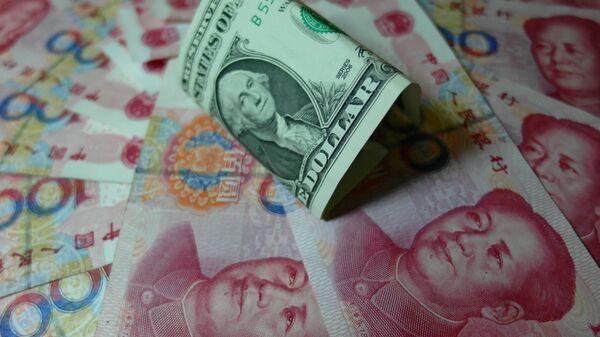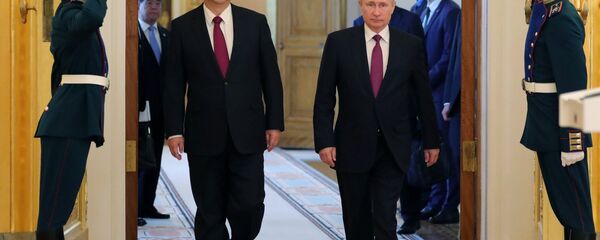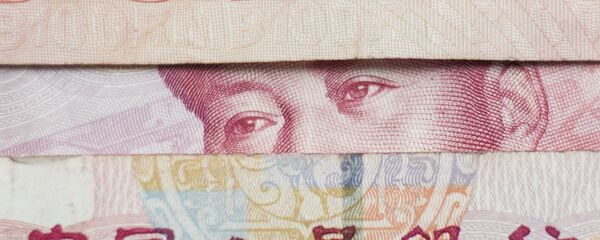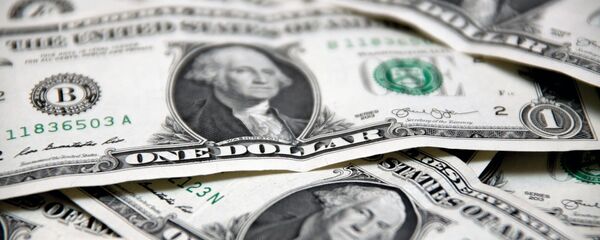The yuan strengthened against the greenback on 12 March as the US and China are expected to finalise their trade agreement in the near future.
According to Eric Kraus, an independent political risk analyst, a bright future awaits the yuan but there's no need to force events.
"As the global economic preeminence of the US continues to slowly decline (it currently accounts for some 21 percent of global GDP) we can expect a continued gradual diversification of currencies, with the yuan acquiring an increasing role in those countries economically linked to China", Kraus told Sputnik.
He foresees that "the provision of swaps lines (allowing third country banking systems to work in yuan), creation of a liquid market in offshore Chinese investment-grade debt securities (to allow holders to park their yuan reserves), and the further development of onshore Chinese futures markets pricing commodities in yuan will help to accelerate the natural process of hand-over".
Nevertheless the analyst warned that "any shift in the global currency will be neither fast nor easy": "Anyone who asserts that this situation can change overnight by a simple act of will is delusional".
'Globalisation of Yuan Would First of All Require Convertibility'
"In the longer run, the establishment of a yuan-based financial system will be in the political interests of China, but this will become a priority only once the One Belt, One Road initiative has been largely implemented, the Chinese economy becomes less export-oriented and more dependent upon domestic consumption, and further economic integration between China and her periphery has been completed", Kraus opined.
"China thinks in centuries — and will not be hurried", the analyst underscored.
He recalled that "China benefited greatly from a cheap-yuan policy during its period of phenomenal export-driven economic development". Between 1979 and 2010, China's average annual GDP growth amounted to 9.91 percent.
"It sold high-quality manufactured goods in return for newly minted dollars which were initially invested in US treasury securities (so as to maintain a cheap yuan), and more recently, have been swapped for real assets in Africa, Asia and Europe and China runs down its US dollar reserves which no longer serve the purpose they once did", the analyst noted.
According to Kraus, while China now benefits from "a very gradual internationalisation of the yuan", the Central Bank of China is "very wary of losing control over their currency which is allowed to fluctuate only within relatively narrow bands".
The yuan is allowed to rise or fall only by 2 percent from its central parity rate each trading day in the country's spot foreign exchange market.
"A truly globalisation of the yuan would first of all require convertibility", Kraus highlighted. "China will render the yuan freely convertible only when they consider it in their own interests to do so. While China is increasingly able to price its exports in yuan (providing a cost savings to already highly competitive Chinese corporates which are no longer required to hedge their dollar exposure) imports will continue to be priced in dollars for the foreseeable future".
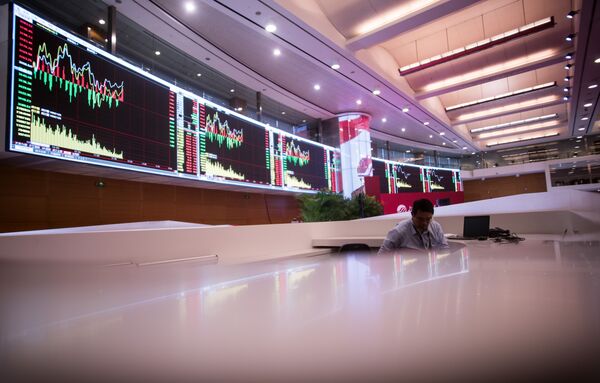
Perceived Volatility of Yuan Doesn't Correspond to Reality
According to the political risk analyst, "even Russia, where there is every conceivable reason to replace dollar reserves with a mix of currencies and precious metals struggles to integrate the yuan".
"Countries will also usually wish to tailor their currency reserves to correspond to their terms of trade (i.e. in what currencies are their imports/exports denominated in) and given that global commodity prices are still overwhelmingly set in dollars, that means that the USD will account for a substantial part of reserves", he opined.
In January 2019 the Central Bank of Russia reported that it had decreased its dollar holdings by $101 billion, moving the equivalent of $44 billion each into euros and the Chinese currency. According to Bloomberg, that put Moscow's yuan share "at about ten times the average for global central banks, with its total holdings of the currency accounting for about a quarter of world reserves in yuan".
At the same time, Beijing and Moscow have yet to conclude a yuan-rouble settlement agreement amid the steady increase in bilateral trade. According to The Global Times, the postponed deal is by no means a setback: "The transformation of the current international economic order cannot accomplish in one simple move", the January report emphasised.
'Empires Rise and Fall and Their Currencies With Them'
"Anyone who imagines that the current global financial architecture is permanent — in the sense that the Alps are a permanent geographic feature is hopelessly ignorant of history. Empires rise and fall, and their currencies with them — largely as a function of their success at exerting economic dominance of their neighbours (political and military control tend to follow the money!)", Kraus pointed out.
"Initially, the dollar was linked to gold, but this was an obviously unsustainable situation given that that the explosive global economic growth in the post-war period far outstripped the increase in gold supply. To have maintained a true gold standard would have been extremely deflationary. Thus, the Bretton Woods dollar-centric financial system came into being and the US dollar became the global currency", he explained.
The US reaped huge benefits from this status quo, according to Kraus: "It has been able to engage in almost unlimited borrowing in its own currency, setting global interest rates as it chooses, and to maintain a massive current account deficit without penalty", he said.
The other side of the coin is that "this provided a temptation that even more mature countries would have struggled to resist" pushing Washington into "hugely irresponsible fiscal policy".
"It has enjoyed a huge current account deficit, keeping the masses content with cheap industrial goods purchased from abroad with newly-printed dollars, at the cost of a hollowing out of its own industrial infrastructure", he said. "At the same time, given the limitations on its ability to use military force it has instead sought to weaponise the dollar, with a global web of sanctions against any country opposing American dominance".
"Both of these are convenient short-term expedients, but bear the seeds of the ultimate demise of King Dollar", Kraus stressed.
The views and opinions expressed by the speaker and the contributor do not necessarily reflect those of Sputnik.

